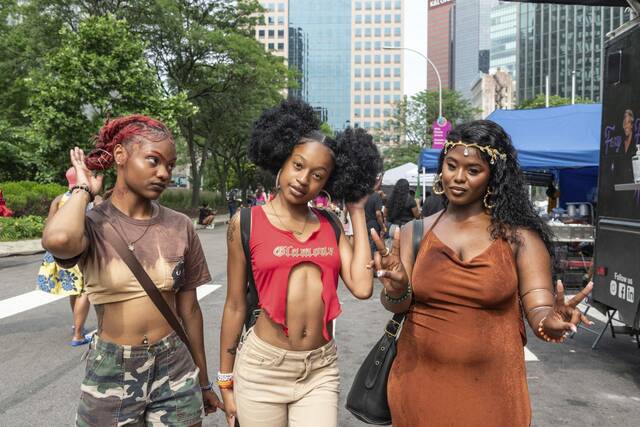https://triblive.com/opinion/editorial-pennsylvanias-crown-act-protects-identities-and-restores-hope/
Editorial: Pennsylvania’s CROWN Act protects identities and restores hope

Imagine one of the most defining aspects of who you are.
Maybe it’s your eye color or your height. Maybe it’s your name or your blood type or your language.
Whatever it is, it’s part of what makes you distinctly you. And the law says it is OK for you to be fired for it or denied an apartment or sent home from school until you changed.
It would be demoralizing. It would make you feel separate from your community. It would say that you are not good enough unless you pretend to be something you are not.
That is something that was acceptable in Pennsylvania for some people — legally — until this week.
The Creating a Respectful and Open World for Natural Hair (CROWN) Act amends the state’s Human Relations Act to prevent discrimination based on hair. First proposed in 2019 by state Rep. La’Tasha Mayes, D-Allegheny, and now Speaker of the House Joanna McClinton, D-Philadelphia, it has been a long journey to passage by the Senate and signing by Gov. Josh Shapiro.
The act makes law what had been regulation since 2023, a specification that racial and religious protections did not stop at skin color or a hijab. They include the unique textures, practices and styles associated with some cultures.
While most often identified with Black hair and styles like braids, afros or locs, the law doesn’t stop there. It could protect indigenous men who keep their hair long for traditional reasons or an Hasidic Jew who maintains long side curls called peyot.
While CROWN Acts are being passed in multiple areas, they differ in scope and language. The Pennsylvania law specifically includes a provision for hair coverings, which could apply to women in some Orthodox Jewish or Christian sects. The law may have started with the idea of protecting one group but could offer shelter to many.
That is not the only way it brings people together.
At a time when Harrisburg, like Washington, is at the height of its partisan divisions, the CROWN Act had the kind of broad support that is all but impossible to achieve.
In the entire General Assembly, only 11 members — three senators and eight representatives — voted nay. Not only that, it got more support since the last session, when it passed the House by a vote of 182-21 but never made it to the Senate.
That speaks of more people reading the language, seeing the applications and realizing the way it protects the people.
Does this erase discrimination? Does it stop someone from being ignored for a promotion because of cornrows or told no one can be on the wrestling team with an afro? No, because just writing a law doesn’t change the way people treat each other.
But it does two things:
It gives a recourse if those actions occur.
And it shows that even Pennsylvania’s locked-in-place lawmakers are capable of change and movement, when their rigid partisanship has been what defined their identities for so long. That’s startling after four months of a budget stalemate.
That gives hope. It’s worth celebrating. And it just might be the General Assembly’s crowning glory.
Copyright ©2026— Trib Total Media, LLC (TribLIVE.com)
